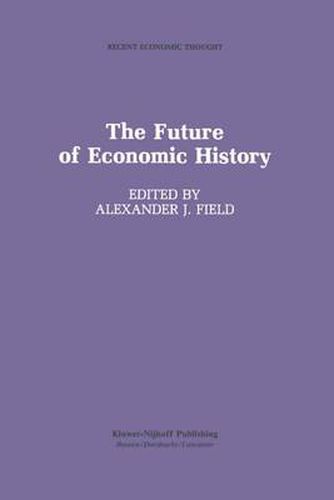Readings Newsletter
Become a Readings Member to make your shopping experience even easier.
Sign in or sign up for free!
You’re not far away from qualifying for FREE standard shipping within Australia
You’ve qualified for FREE standard shipping within Australia
The cart is loading…






This title is printed to order. This book may have been self-published. If so, we cannot guarantee the quality of the content. In the main most books will have gone through the editing process however some may not. We therefore suggest that you be aware of this before ordering this book. If in doubt check either the author or publisher’s details as we are unable to accept any returns unless they are faulty. Please contact us if you have any questions.
This collection represents a modest attempt to chart a new course for the intellectual discipline known as economic history. (The book is not about productivity growth in the 1990s, lest the title give rise to any confusion.) As a group, these essays suggest new and potentially fruitful areas or approaches for research and at the same time address weaknesses in past efforts. One important audience will be graduate students attempting to decide whether to write a dissertation in economic history, or trying to select or refine dissertation topics in the area, and determine how to approach them. Some of the essays will most certainly be appropriate additions to the or semester courses in economic history that remain a fixture in quarter graduate economics training programs. A second audience should be established scholars who are now or have in the past done research in economic history and are interested in the perspectives of a relatively younger group of scholars. The term younger is used here advisedly to describe a group of scholars born between 1943 and 1954. Nevertheless, the authors of these essays can on at least one dimension be distinguished from the pathbreaking new economic his torians who established their academic reputations in the early 1960s. Indeed, the contributors to this volume include students of such pioneers as Richard Easterlin, Albert Fishlow, William Parker, and Jeffrey Williamson.
$9.00 standard shipping within Australia
FREE standard shipping within Australia for orders over $100.00
Express & International shipping calculated at checkout
This title is printed to order. This book may have been self-published. If so, we cannot guarantee the quality of the content. In the main most books will have gone through the editing process however some may not. We therefore suggest that you be aware of this before ordering this book. If in doubt check either the author or publisher’s details as we are unable to accept any returns unless they are faulty. Please contact us if you have any questions.
This collection represents a modest attempt to chart a new course for the intellectual discipline known as economic history. (The book is not about productivity growth in the 1990s, lest the title give rise to any confusion.) As a group, these essays suggest new and potentially fruitful areas or approaches for research and at the same time address weaknesses in past efforts. One important audience will be graduate students attempting to decide whether to write a dissertation in economic history, or trying to select or refine dissertation topics in the area, and determine how to approach them. Some of the essays will most certainly be appropriate additions to the or semester courses in economic history that remain a fixture in quarter graduate economics training programs. A second audience should be established scholars who are now or have in the past done research in economic history and are interested in the perspectives of a relatively younger group of scholars. The term younger is used here advisedly to describe a group of scholars born between 1943 and 1954. Nevertheless, the authors of these essays can on at least one dimension be distinguished from the pathbreaking new economic his torians who established their academic reputations in the early 1960s. Indeed, the contributors to this volume include students of such pioneers as Richard Easterlin, Albert Fishlow, William Parker, and Jeffrey Williamson.